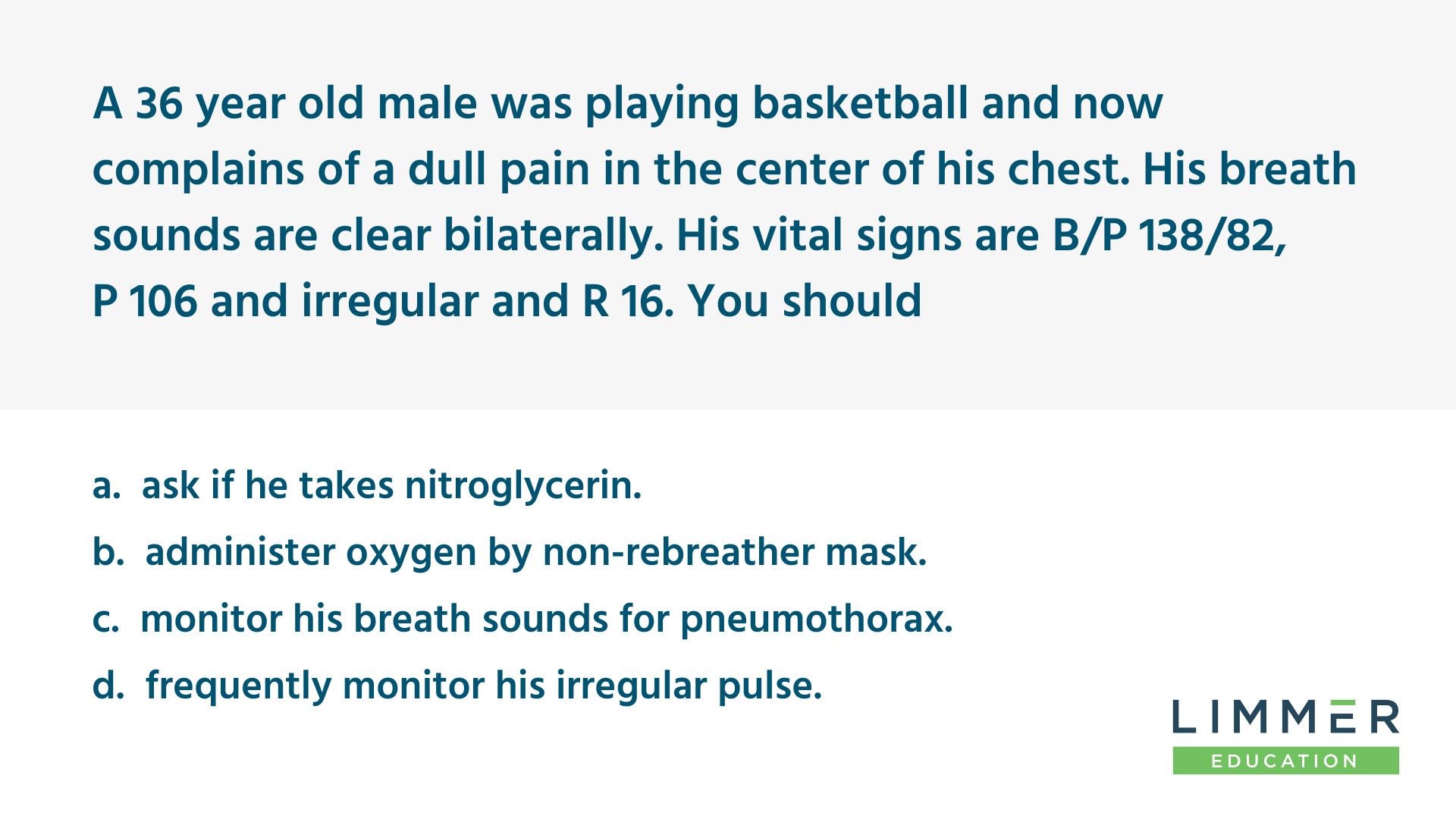
Limmer Education
Today we want to take a closer look at a practice NREMT question that’s been the subject of some debate on YouTube
Here’s the question:

We’ll discuss the answer choices down below, but first let’s go over some important general tips. Remembering these just might save your next NREMT attempt:
Don’t assume anything that isn’t stated in the question stem.
Don’t ignore anything that is stated in the question stem.
You don’t get to do your own patient assessment. You might want more information on the patient, but everything you need to make the right decision is right there in front of you.
Know the difference between “you would” and “you should.” The NREMT always asks what you SHOULD do. Sometimes you can make a case for what you WOULD do based on something your instructor said or your station protocols. But when asked what you SHOULD do, your task is to identify the one clear right answer.
Yes, he has chest pain. But what else does the question say? He is 36 years old and playing basketball. Not exactly the profile of a person who would carry nitroglycerin.
This is a “what should you do” question. So even though, on a real call, you might cover your bases during assessment and ask about nitro – it’s obviously not the most important “should do” for this question.
What is the patient complaint? Dull chest pain. He isn’t complaining of respiratory distress. The question doesn’t provide oxygen saturation, but his respiratory rate is good, his blood pressure is good and he has clear breath sounds.
There is no indication for oxygen--and certainly not by non-rebreather.
Some people were taught to give oxygen to patients with cardiac complaints. It’s an outdated way of thinking. Research has repeatedly shown that giving high-flow oxygen to these patients may actually be harmful. The NREMT follows the research and you should too.
The question tells you this patient’s breath sounds are clear bilaterally. This isn’t an unreasonable action to take on a real-life call, but just like the nitro option, this is not the most important “should do” for an NREMT question.
Look at the vital signs in the question. The only red flag is the irregular pulse. Given the patient’s age and apparent overall health, you wouldn’t expect him to have an irregular pulse. And the irregular pulse best correlates to the patient complaint. All the clues in the question point to this as the most important action you should take – and that goes for the NREMT and the real-life call.
For more practice questions like this, check out our Passing the NREMT playlist on YouTube.
See also:
P.S. Still think the answer should be oxygen?

Limmer Education

Mike Miller

Limmer Education